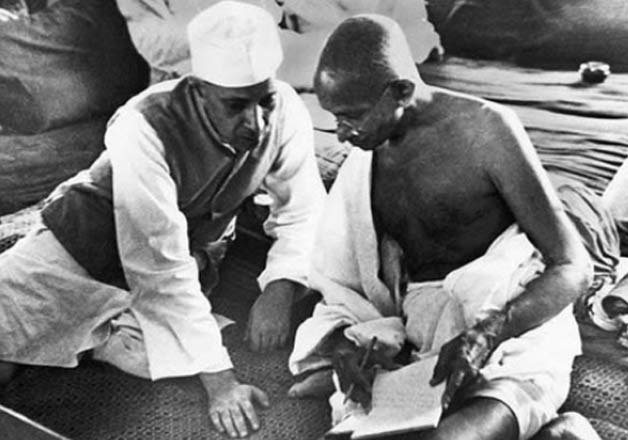
The answer to this question is not that simple. But a closer analysis of Gandhi's approach towards Patel and Nehru throws light over a few facts that can decipher the mystery.
There is no denying the fact that Gandhi had a ‘soft corner' for Nehru since beginning and he had preferred Nehru over Sardar Patel at least twice before 1946 for the post of Congress president. It happened in 1929 as well as in 1937.
Gandhi was always impressed with the modern outlook of Nehru. In comparison to Nehru, Sardar Patel was a little orthodox and Gandhi thought India needed a person who was modern in his approach.
But more than anything, Gandhi always knew that Sardar Patel would never defy him. He was not so convinced about Nehru. Gandhi's apprehensions came true when Nehru made it clear to him that he was not willing to play second fiddle to anybody.
Perhaps, Gandhi wanted both Nehru and Patel to provide leadership to the country. He used his veto power in favour of Nehru because he feared Nehru could cause problems in the way of India's independence if he was not given the chance to become Prime Minister.
Some analysts have also claimed that Nehru threatened to split the Congress in case he was not made prime Minister.
According to these analysts, Nehru coerced Gandhi into supporting him by saying that if he split the Congress, the entire independence plan would go awry as the British would get an excuse in delaying independence by raising the question as to who should be handed over the reins of power, Congress with Nehru or Congress minus Nehru.
Gandhi must have thought that it would be safe to ask Sardar Patel for making the sacrifice than to reason with a power-smitten Nehru. In fact, he had commented that Nehru had gone power-mad.
So, we can conclude that Gandhi chose Nehru over Patel because of two main reasons:
1.Gandhi believed a foreign educated Nehru with modern thoughts had an edge over Patel who, according to him, was orthodox in his thoughts.
2.Gandhi feared Nehru would revolt in case he was denied PM's post and that would give the British an excuse to delay transfer of power. On the other hand, he was fully convinced of Sardar Patel's loyalty. He knew Sardar Patel was a true patriot and would never play a spoilsport.
